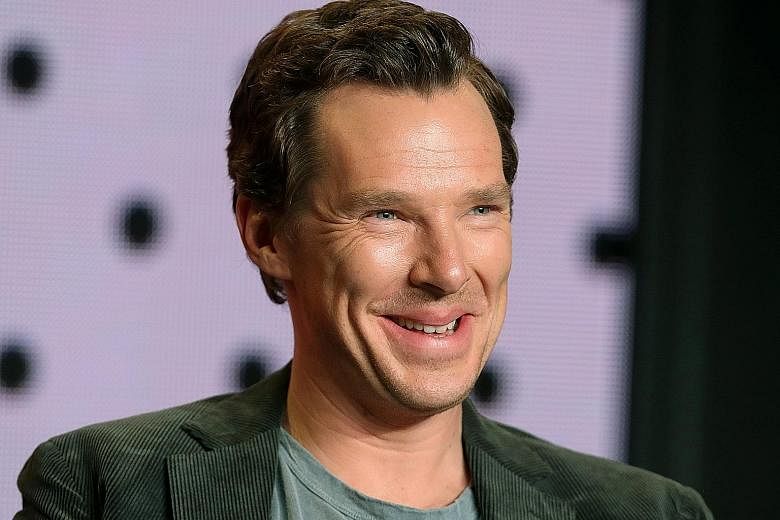TORONTO •Actor Benedict Cumberbatch was initially in the dark about the life of American inventor Thomas Edison, who came up with the electric light bulb.
But he charged headlong into research and both he and Michael Shannon electrified audiences at the Toronto International Film Festival on Sunday with their portrayals of Edison and his rival - in the race for marketable electricity - George Westinghouse.
The Current War's director Alfonso Gomez-Rejon described Edison as someone "who came from a world of spontaneous invention without really seeing the purpose for it at first, and created a purpose for something".
In contrast, "Westinghouse could immediately contextualise something and see how it could be greater for society".
"The rivalry between them was interesting," Gomez-Rejon added, because of "what it said about the world and how we can, through invention and technology, leave it better than how we found it".
Edison and his team conducted the first incandescent light-bulb tests in 1879 and a few years later began broad distribution of electricity using a direct current (DC).
Westinghouse, whose interests in gas distribution and telephone switching led him to look into electrical power distribution, saw that Edison's use of low-voltage DC had a limited range.
After reading about European alternating current (AC) systems, he set out to develop and market AC power systems that could distribute electricity over long distances to dispersed United States populations.
He was also able to achieve greater economies of scale with the use of centralised power generation, allowing him to sell electricity at cheaper rates.
Cumberbatch's portrayal of Edison is alternately sympathetic and not. Various biographies, he noted, offer a "varied understanding and appreciation of the man".
The actor's own interpretation is that of "a man who had achieved a great deal from humble beginnings, who felt assailed in the world. I don't think that ever left him".
To prepare for the role, Cumberbatch read an extract from Edison's diary in which the inventor talked frankly about his dreams, "his diet and bowel movements or lack thereof", literature, "his fantasy world" and how he once "got into a mess in New York because he asked a conductor on a tram which stop to get off at and he couldn't hear him".
Edison had suffered from partial hearing loss since childhood.
Shannon had a wholly different challenge in preparing for the role because Westinghouse destroyed all his personal papers before his death, wanting posterity to judge him only for his deeds.
"My goal wasn't to try and create an exact replication of George Westinghouse - it's just not possible - so I more considered his point of view, his way of being in the world and dealing with people," said Shannon.
Before the start of filming, Gomez-Rejon had found a rare and very old leather-bound book about Westinghouse and shared it with the actor.
Shannon said: "It was almost a tribute to Westinghouse. It was written by someone who had a great deal of respect for him, talked about what a great man he was and all of his accomplishments.
"By the time I finished reading it, it really had done a number on me, so that was the foundation of my work on the film."
AGENCE FRANCE-PRESSE

